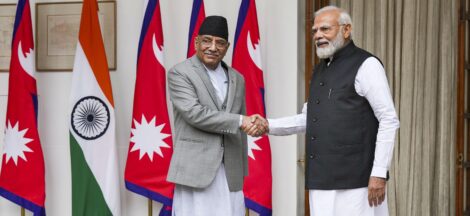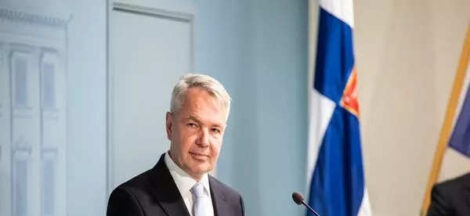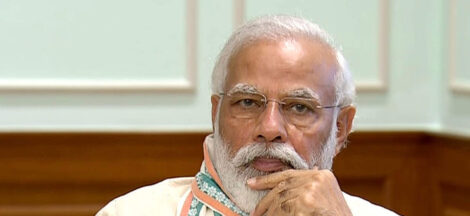By Harihar Swarup
Howsoever, Prime Minister Narendra Modi and his colleagues may abuse Indira Gandhi, compare her to Hitler, to mark the 43rd anniversary of Emergency, she remains the most popular leader of India. If BJP leaders think they can get votes by recalling days of Emergency and accusing Indira Gandhi of turning the country into dynastic democracy, they are sadly mistaken. Modi has, however, made Emergency the centre-piece of his counter attack on the Congress: “Your grandmother imposed Emergency, and you have cheek to call me a dictator!”, he told Rahul Gandhi.
The fact is that Modi’s image has been sliding down. His mass appeal is not as powerful as before 2014 general elections. During its four-year rule, the BJP has not shown any spectacular result and will be facing the people in less than a year’s time. The party’s electoral prospects don’t appear too bright.
While ArunJaitley writes about dark days of the Emergency, trampling of personal liberties, excesses committed and how Emergency was a direct attack on our constitutional ideals, PM was more stringent in his criticism of Indira Gandhi and the “frightful days of Emergency”. Jaitely says: “Mrs. Gandhi imposed Emergency under Article352, suspended fundamental rights under article 359, and claimed that disorder was planned by the Opposition in the country at that time. The security forces were being asked to obey illegal orders and, therefore, in the larger interest of the nation, India had to become a disciplined democracy”, Jaitley writes, quoting Mrs. Gandhi.
The Congress hit back at the BJP and said the “issue-less” government was raking up the Emergency 43 years after it was imposed and forgot to the tell the people that Indira Gandhi had later revoked Emergency, conducted elections and won.
It would be worth recalling days before imposition of Emergency. I have personally seen those days as a special correspondent of the PTI and drawing from Indira Gandhi’s biography by the late Inder Mehrotra, I recall the days before and after Emergency. Mehrotra had known Indira Gandhi personally and seen history being made as political correspondent of The Statesman and The Times of India.
Justice Sinha’s judgment was, of course, subject to appeal in the Supreme Court, and there was more than an even chance that Indira would win the appeal. The real and agonizing question was what was to happen during the four months to six months the Supreme Court was likely to take to hear and decide the appeal. Her legal claim to stay in office would be strengthened if the Supreme Court would give her an unconditional stay of the Allahabad verdict. But all precedent went against this expectation. In such cases in the past the stay had been conditional. A disqualified minister or MP could, while his or her appeal was pending, could take part in Parliament proceedings but could not vote. A Prime Minister placed in this awkward position could hardly be effective though it is a safe bet that even in the event of a conditional stay, Jaya Prakash Narayan and other opponents of Indira would have raised the most strenuous objections to her continuing as Prime Minister.
It was on this point that hectic consultations were taking place at the Prime Minister’s house. Almost all her cabinet colleagues had trooped there on getting the first world from Allahabad but their role was largely peripheral. Indira while keeping her own counsel was listening to a handful of confidants. But while on the fateful day of June 12, 1975, it seems that Indira was inclined to step down temporarily, put into her office the able unambitious Swaran Singh who was unlikely to behave like the proverbial cuckoo in nest and return to power after her appeal was held by the Supreme Court and her prestige restored. But this turn out to be a feint and in retrospect, it became abundantly clear she never had intention of laying down office even for a minute.
The most conclusive evidence for this came from herself, though several years later when she was out of her power. Breaking her habitual her silence on the subject, she told Dom Moraes, one of her many biographer, that she had no option but to stay in office after Allahabad judgment because the country was “in peril” from “both external and internal enemies” and, “that there was no one else”, around who could cope with the “grave threat”. Evidently, her faith in her indispensability was never shaken.
On the day of Allahabad verdict, however, she did keep the option of temporarily withdrawal from office open to discussion. There were several among of Indira’s friends and well-wishers who were convinced that stepping down from office until the Supreme Court had pronounced on her appeal would be in the best interest of the country and herself. But they either kept quiet or expressed themselves most gingerly.
Unusually strident by contrast were the hordes of those who argued that stepping down from office should not even be contemplated. This, they maintained was precisely what the “country’s enemies wanted”. Most cabinet ministers, almost all congress chief ministers and large number of MPs joined chores. They were anxious to display of her loyalty of Indira. But their main concern was to preserve their own position in the Indira-built power structure, the whole of which, they feared, might collapse, if she was out of office even temporarily.
The kind of danger that might arise if Indira did step down also became apparent during the short few hours when the option was considered and rejected. Jagjivan Ram, the alienated Defence Minister, served under Indira, loyally and happily. But she thought of making Swaran Singh PM even temporarily he would assert his superior claim.
All eyes were on Justice Krishna Iyer. He gave his ruling on the prayer for a stay order on the afternoon of June 24. Its purport was, however, that Indira could have a conditional say of the Allahabad verdict. She could stay in office and speak in Parliament but until the appeal was decided she could not vote in Parliament. With whoop of delight JP announced on behalf of all the opposition parties the decision to launch a country-wide movement to secure Indira’s resignation. He unfolded the details of the plan at a huge rally early this next evening at Delhi’s Ram Lila ground. The rally’s high point was JP’s appeal to the army, the police and the bureaucracy to refuse to obey Indira and abide by Constitution instead.
At about 11 on the night of June 25 Indira companied by Chief Justice of India A N Ray went to Rashtrapati Bhavan to inform President Fakruddin Ahmed that her government had decided to impose a state of internal Emergency. Almost immediately, India went under Emergency rule and the world’s largest democracy turned into a virtual dictatorship.
Many people said then and some continue to say now to this day that Indira imposed Emergency because of her authoritarian nature; she was fed up with dissent, a vigorous opposition and was happy to have dictatorial powers. This is not a fair assessment even though it must be conceded that Indira at times behaved imperiously. But she disproved this charge by one simple act of calling for fresh election entirely on her own and apparently without being under any pressure to do so, barely after 19 months after the imposition of Emergency.
That apart, Mary Carras, the only biographer of Indira, to have attempted a political-psycho analysis of her came to the conclusion that not only was she “democratic in temperament and personal style, but her self-image had been that of a democrat”.
It is well known that the Janata Dal collapsed under its weight within 19 months and Indira Gandhi returned to power again. (IPA Service)
The post Is emergency the only measure of Indira Gandhi? appeared first on Newspack by India Press Agency.


